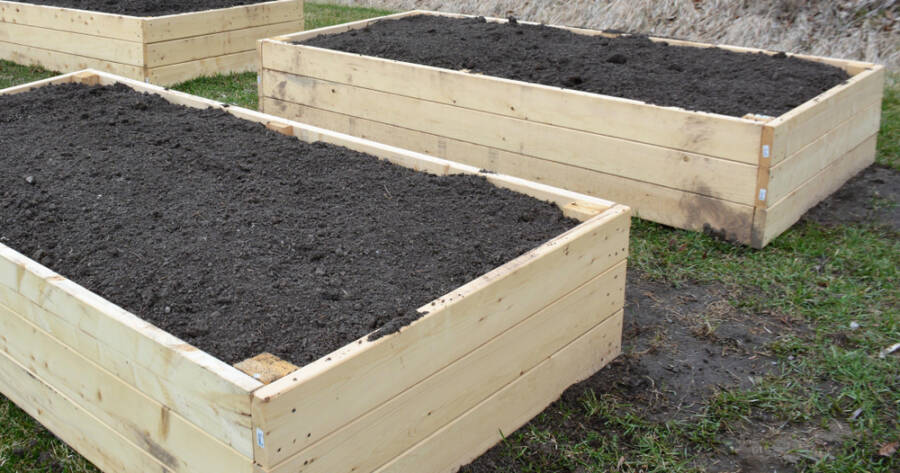Are you ready to unlock the secrets of gardening success and transform your backyard into a bountiful paradise? Look no further than the remarkable world of raised bed gardening, where nature’s bounty awaits your exploration.
Best Soil for Raised Bed Gardens
The foundation of any successful raised bed garden lies in the soil. Choosing the right soil mix is essential for optimal plant growth and bountiful harvests. A well-draining, nutrient-rich soil is the key to unlocking your garden’s full potential. Here are some tips for creating the perfect soil for your raised beds:
- Opt for a mixture of topsoil, compost, and organic matter. This combination provides excellent drainage, aeration, and a wealth of nutrients for your plants to thrive.1
- Incorporate compost regularly to replenish nutrients and improve soil structure. Compost acts as a natural fertilizer, enhancing soil fertility and promoting healthy plant growth.
- Avoid using garden soil directly in raised beds. Garden soil often lacks the necessary drainage and nutrient content, potentially hindering plant growth.
- Consider adding specific amendments based on your plants’ needs. For instance, adding bone meal or wood ash can provide extra phosphorus and potassium, respectively.
Raised Bed Garden Plans That Include Companion Planting
Maximize your garden’s productivity and enhance plant health by incorporating companion planting into your raised bed design. Companion planting involves strategically placing different plants together to benefit from their symbiotic relationships.2 Here are some effective companion planting combinations for raised beds:
- Tomatoes and basil: Basil helps repel pests that commonly affect tomatoes, while tomatoes provide support for basil to grow.
- Cucumbers and dill: Dill attracts beneficial insects that help control pests, while cucumbers benefit from the shade provided by dill.
- Marigolds and vegetables: Marigolds deter pests and improve soil quality, making them excellent companions for various vegetables.
- Onions and carrots: Onions help repel carrot flies, while carrots help control onion root maggots.
Tips on How to Do Raised Bed Irrigation Systems
Efficient irrigation is crucial for maintaining healthy plants and maximizing yields in raised bed gardens. Here are some tips for setting up an effective irrigation system:
- Install a drip irrigation system: Drip irrigation delivers water directly to the plant roots, minimizing water waste and reducing the risk of fungal diseases.
- Use a soaker hose: Soaker hoses provide a slow, steady flow of water, allowing for deep watering without water runoff.
- Consider installing a rain barrel: Collecting rainwater for irrigation purposes is an eco-friendly and cost-effective way to water your raised beds.
- Water your plants regularly, especially during dry spells. Raised beds tend to dry out more quickly than traditional gardens, so regular watering is essential.
Why You Should Learn More About Raised Bed Gardening
Raised bed gardening offers a wealth of benefits for both beginners and experienced gardeners alike. By learning more about this innovative gardening technique, you can:
- Maximize your garden’s productivity: Raised beds allow for intensive planting, enabling you to grow more plants in a smaller space.
- Improve soil quality: Raised beds provide better drainage and aeration, leading to healthier soil and more vigorous plants.
- Reduce pests and diseases: The elevated nature of raised beds helps deter pests and reduces the risk of soil-borne diseases.
- Extend your growing season: Raised beds warm up faster in spring and retain heat better in fall, allowing you to grow plants for a longer period.
- Enjoy the benefits of gardening without the backache: Raised beds eliminate the need for excessive bending and kneeling, making gardening more accessible and enjoyable.
Embark on a journey of discovery and delve deeper into the world of raised bed gardening. Transform your garden into a thriving oasis and experience the joy of bountiful harvests and the satisfaction of growing your own fresh, organic produce.
